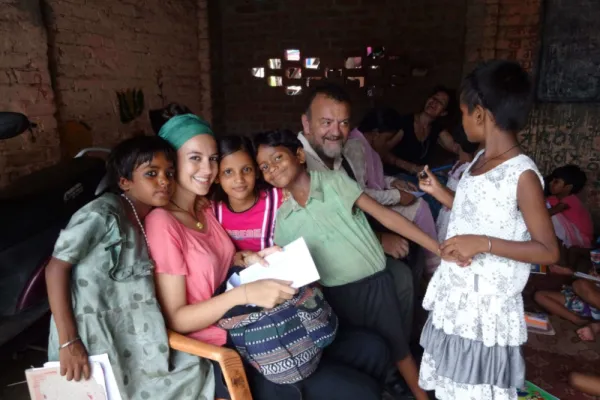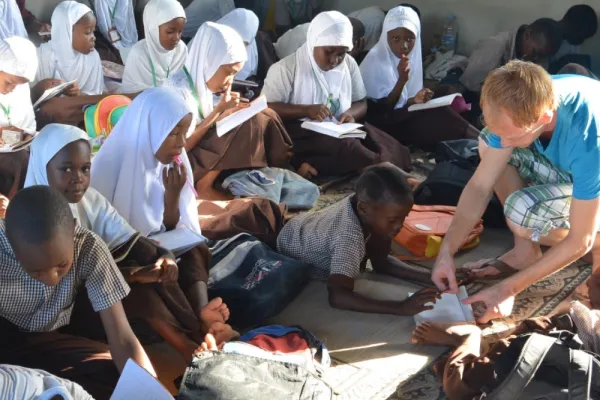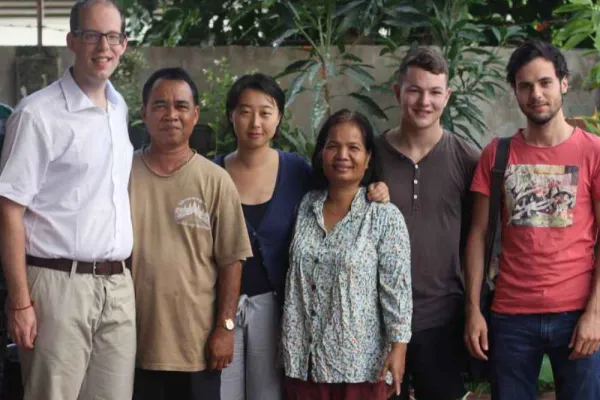Book with complete peace of mind with our Flexible Booking Policy
How Can You Volunteer in Africa? A Guide to Getting Started
-
{
-
- |
-
Read time
6 minutes
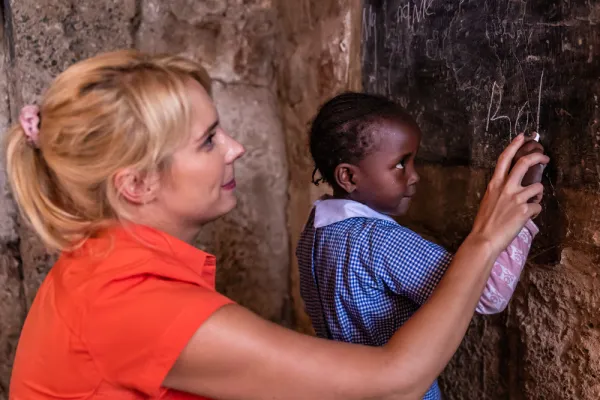
Volunteering in Africa is more than just travel; it’s a chance to make a difference, connect with new cultures, and gain real-life perspective. Across the continent, communities welcome volunteers to support projects in education, healthcare, conservation, and more.
If you're wondering how to get started, the good news is that it's easier than you might think. In this guide, we’ll walk you through each step—from choosing your focus and destination to applying and preparing for your trip—so you can start your volunteer journey with confidence.
Step 1: Decide What Type of Work You Want to Do
The first step in planning your volunteer experience is figuring out what kind of project you want to be part of. Africa offers a wide range of volunteer opportunities, so it helps to choose something that matches your interests, strengths, or goals.
Here are some of the most popular options:
- Teaching and education: Help students build confidence in English, math, or life skills by assisting local teachers in schools or after-school programs.
- Childcare and youth development: Support children in daycares or community centers through play-based learning, storytelling, and basic care.
- Wildlife and conservation: Join efforts to protect endangered species, work in eco-reserves, or help with environmental awareness campaigns.
- Healthcare and public health: Assist with non-clinical support in health centers, promote hygiene education, or help organize wellness outreach programs.
- Women’s empowerment and community support: Help lead skills training, small business support, or mentoring programs that uplift local women and families.
Step 2: Choose Your Destination
Once you know the kind of work you’d like to do, the next step is deciding where you want to go. Africa is incredibly diverse, and each country offers a unique experience. Some are known for their vibrant cities, others for their wildlife or close-knit rural communities. Choosing the right location can shape the entire tone of your volunteer trip.
Here are a few popular and beginner-friendly countries to consider:
Ghana
Well known for its friendly people and community-driven programs, Ghana is great for teaching, childcare, and healthcare placements. English is widely spoken, which makes it easy to communicate and connect.
Kenya
Kenya offers a mix of urban and rural placements, with strong programs in education, public health, and community development. Volunteers often enjoy the cultural diversity and natural beauty.
Tanzania
Tanzania is a peaceful and welcoming destination. It’s a top choice for wildlife conservation and also offers rewarding opportunities in teaching and women’s empowerment.
South Africa
If you’re looking for a more urban environment, South Africa has well-structured programs in cities like Cape Town and Port Elizabeth. You’ll find volunteer options in education, healthcare, and environmental work.
Morocco
For those interested in North African culture, Morocco offers a unique blend of Arabic, Berber, and French influences. Volunteers here often focus on language education, women’s empowerment, and youth support.
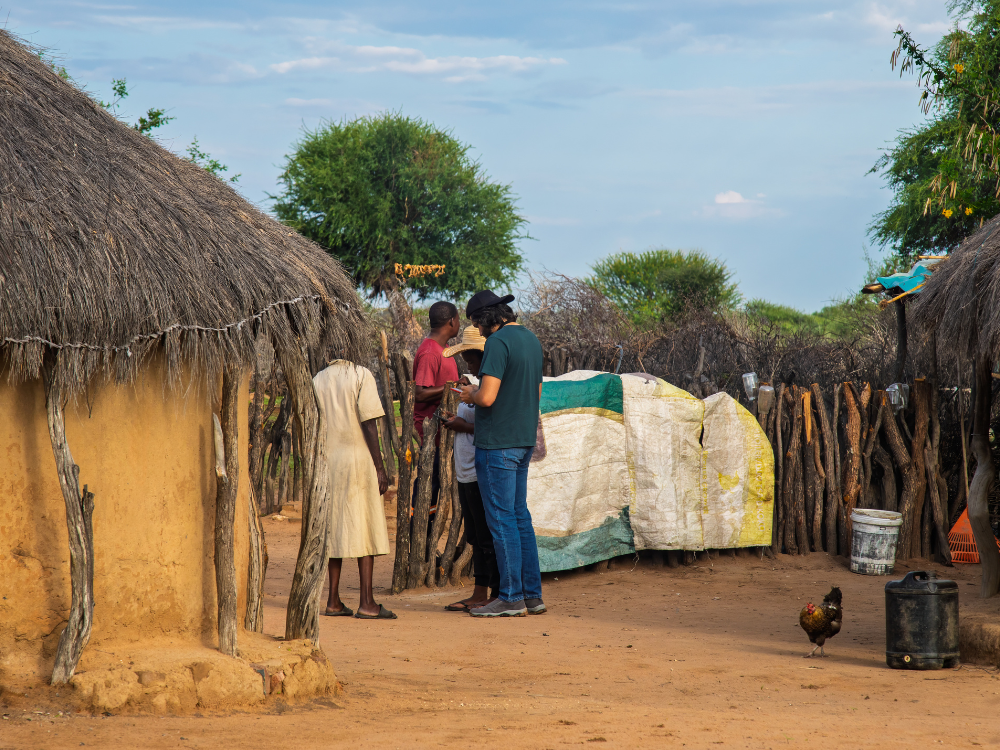
Step 4: Apply and Secure Your Spot
Once you've chosen a destination and found the right program, it's time to apply. Most volunteer organizations make the process simple and straightforward, and they’ll walk you through every step.
1. Fill out your application
Start by submitting a short online form where you share your interests, preferred dates, and basic background. Some programs may ask for a short interview or follow-up email to help match you to the right placement.
2. Get matched and confirm details
Once accepted, you’ll receive information about your placement, accommodation, and what to expect. You’ll also be able to ask questions and confirm your travel plans.
3. Reserve your place
Most programs require a deposit or payment to hold your spot. This helps cover your housing, meals, local support, and materials you'll use during the project.
4. Stay in touch
As your start date gets closer, you’ll receive helpful updates and preparation resources. Some organizations even connect you with other volunteers in advance so you can get to know each other before you travel.
Step 5: Prepare for Your Trip
With your spot confirmed, it's time to get ready. Preparing well before you leave will help you feel confident, stay healthy, and make the most of your time abroad.
1. Check your passport and visa
Make sure your passport is valid for at least six months beyond your trip. Some countries require a visa, so check the entry rules for your destination and apply early if needed.
2. Visit your doctor
Ask about any recommended vaccinations or medications for your destination. Bring copies of your prescriptions and consider travel insurance that covers health and emergencies.
3. Pack smart
Bring clothes that are practical and respectful of the local culture. Include lightweight clothing, modest options, sturdy shoes, a reusable water bottle, and any project-specific items your organization suggests.
4. Learn a little about the culture
Even a few local words or phrases can go a long way. Take time to read about the country’s customs, traditions, and social norms so you can connect more easily with the community.
5. Join your pre-departure orientation
Most volunteer programs offer resources, calls, or online guides to help you prepare. While volunteering in Africa is safe, they can help you adapt to your new culture.
Ready to Start Your Volunteer Journey?
Volunteering in Africa is an unforgettable way to learn, give back, and grow - both personally and alongside the community you serve. With the right support, it’s easy to turn your interest into action.
Explore trusted volunteer programs in Africa with Volunteering Solutions and find the one that’s right for you.
FAQs: How to Volunteer in Africa and Get Started
Do I need any previous experience to volunteer in Africa?
No. Most volunteer programs in Africa are beginner-friendly and designed for people who have no prior experience at all. A positive attitude and willingness to learn are the most important requirements.
What types of volunteer work are available in Africa?
Common opportunities include teaching and education support, childcare and youth programs, wildlife and conservation projects, healthcare support roles, and women’s empowerment or community development initiatives.
How do I choose the right volunteer program for me?
Start by matching your own interests and skills with the type of work that is offered. Then consider your preferred destination, time commitment, and comfort level to find a program that feels like a good fit to you.
Which African countries are best for first-time volunteers?
Countries such as Ghana, Kenya, Tanzania, South Africa, and Morocco are all popular with first-time volunteers due to their welcoming communities, structured programs, and strong in-country support.
How long can I volunteer in Africa for?
Volunteer programs range from 1 to 24 weeks, allowing you to choose anything from a short-term placement during a break to a longer experience if your schedule allows for it.
What is the application process like for volunteering in Africa?
The process usually involves completing an online application and confirming your placement details then securing your spot with a deposit. You will then stay in contact with coordinators as you prepare for departure.
What documents do I need before volunteering in Africa?
You will usually need a valid passport, and possibly a visa depending on your destination. Some programs may also request background checks, medical forms, or proof of vaccinations.
What should I do to prepare before I travel?
Preparation includes checking passport and visa requirements and visiting a healthcare provider for your vaccinations. You should also make sure that you pack appropriate clothing and try to learn a little about local culture.
Is it possible to volunteer in Africa with friends or as a group?
Yes. Many programs welcome friends and groups. Group volunteering is especially popular amongst students, universities, and first-time international volunteers.
What’s included in a typical volunteer program fee?
Program fees often include accommodation, meals, airport pickup, local orientation, and in-country support. Flights, visas, vaccinations, and personal expenses are usually not included.
Software designer, founder, and amateur astronaut.
I’m Spencer, a software designer and entrepreneur based in New York City. I’m the founder and CEO of Planetaria, where we develop technologies that empower regular people to explore space on their own terms.

Recent Blogs
How Does Volunteering Abroad Benefit High School Students?
Family Volunteer Ideas That Are Great for the Whole Family
Still have Questions?
Change language & currency
Currency

























